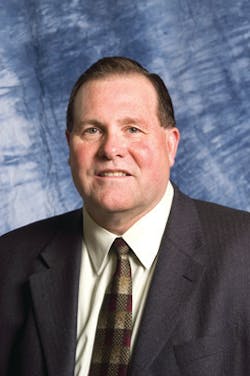In May 2013, I wrote a column about a survey taken to identify what some metropolitan fire chiefs from across the country believed to be the most critical issues facing their local fire departments and the national fire service over the next couple of years. In that column, I promised to periodically provide tools and information that might help fire departments address some of the issues they identified – which I’ve done once already (see my August 2013 column). My goal for the column this month is to do that for you once again.
Two critical issues
Two of the issues identified by the fire chiefs surveyed in 2013 dealt directly with communicating effectively with elected officials and other policymakers:
1. “Educate the people who fund us and the general public about the complete role of the fire department and firefighters.”
2. “…the fire service should rebuild service delivery capability in a methodical way using science, not history, while showing that the fire service is evolving and learning in an effort to better serve our communities. The reputation and relevance of the fire service must be maintained.”
The Phoenix, AZ, Fire Department has a rich history of innovative leadership within the fire service, and it is once again doing so in a way that relates directly to the two issues the fire chiefs identified above. This approach could well be “cutting edge” when it comes to identifying and communicating the economic value of the fire department within society.
In February 2014, the L. William Seidman Research Institute at the W.P. Carey School of Business at Arizona State University (ASU), along with Underwriters Laboratories (UL), partnered with the Phoenix Fire Department to produce the results of a study they conducted together between June 1, 2012, and May 31, 2013, to measure the economic impact of commercial fire responses in the fire service. Realizing that saving lives comes first for any fire department, the study’s basic purpose was to measure the economic value and the return on investment (ROI) the entire community receives from the services provided by its fire department.
For purposes of the initial study, the researchers focused solely on 42 commercial structure fires that occurred in Phoenix during the established timeframe. These structures were burning beyond the incipient stage and required extinguishment by fire crews. The study makes use of an Arizona-specific version of the Regional Economic Models Inc. (REMI) forecasting model (updated at the Seidman Research Institute) to produce economic estimates of commercial businesses and organizations in Phoenix, Maricopa County and the State of Arizona.
The findings of this study should get the attention of all fire service leaders from labor and management, as well as elected officials and other policymakers. Based on this study, had the fire department not successfully intervened in these specific fire incidents, the following economic impacts could have resulted:
• Upwards of 7,000 non-farm jobs could have been lost in the city, county and state combined
• The gross state product could have been lowered by more than $600 million and real disposable personal income lowered by about $290 million
• Arizona state tax revenues could have fallen by about $35 million
According to the study conclusions, “the results clearly indicate that the Phoenix Fire Department exerted a significant impact on the local, county and state economies over the 12-month study period by successfully extinguishing these fires.”
Do these efforts suggest that we should abandon the collection and use of current data for measuring the success of a fire department service-delivery system? No – and that is not the point of the work being done in Phoenix. What the study does suggest is that there are previously uncharted ways of measuring the value and ROI of a fire department that should be more fully explored and used to more effectively communicate outcomes to elected officials and other policymakers who determine the levels of resources that will be invested in their fire departments.
Next steps
During a Phoenix Fire Department Labor/Management Retreat conducted in May 2014, it was jointly agreed to move more aggressively down the path this research is guiding them. They will work with their partners toward expanding the use of the model to more commercial fires, include residential fires, and explore the application of this methodology to EMS as well. They are truly excited about the benefits of expanding the research and cultivating this data, as well as the many uses it might have in the administrative, management and political processes within which they are engaged.
It will be interesting to see how other fire departments react to this “different” way of measuring outcomes, effectiveness and impact. I was recently informed of a fire department in North Carolina that became aware of this study and is going through the process of designing and implementing it in their organization. As you may know, the fire service is currently engaged in efforts to identify and implement better data-management elements and systems than what are now in place.
Remember what the fire chiefs said in the recent survey in which they communicated their most critical fire service issues. Two of the issues they identified relate directly to the research conducted in this study:
1. “Educate the people who fund us and the general public about the complete role of the fire department and firefighters.”
2. “…the fire service should rebuild service delivery capability in a methodical way using science, not history, while showing that the fire service is evolving and learning in an effort to better serve our communities. The reputation and relevance of the fire service must be maintained.”
If you want to learn more about what the partnership formed in Phoenix is doing within this program, you can contact Deputy Chief Jeff Case at [email protected]. He will be more than willing to share their experience and information. This work has real potential. It’s worth a close look by the major national fire service membership organizations, fire chiefs and union leaders. These people in Arizona might be on to something useful – and what a shame it would be if the rest of the fire service were not made aware of it.
Dennis Compton presents “If You’re an Officer, Be a Leader” and moderates the “Chiefs/Commissioners Panel” at Firehouse Expo 2014.
DENNIS COMPTON, a Firehouse® contributing editor, is a speaker and the author of Progressive Leadership Principles, Concepts and Tools, the When in Doubt, Lead! books, the book Mental Aspects of Performance for Firefighters and Fire Officers, and many articles, chapters and other publications. He was the fire chief in Mesa, AZ, for five years and assistant fire chief in Phoenix, where he served for 27 years. Compton is past chairman of the Executive Board of the International Fire Service Training Association (IFSTA) and past chairman of the Congressional Fire Services Institute’s National Advisory Committee. He is currently chairman of the National Fallen Firefighters Foundation Board of Directors.
About the Author

Dennis Compton
Chief
DENNIS COMPTON is a well-known speaker and the author of several books, including his most recent offering titled Progressive Leadership Principles, Concepts and Tools. He also authored the three-part series of books titled When in Doubt, Lead, the book Mental Aspects of Performance for Firefighters and Fire Officers, as well as many articles, chapters and other publications. Compton was the fire chief in Mesa, AZ, for five years and an assistant fire chief in Phoenix, where he served for 27 years. He is past chairman of the Executive Board of the International Fire Service Training Association (IFSTA) and past chairman of the Congressional Fire Services Institute (CFSI) National Advisory Committee. Compton is currently the chairman of the National Fallen Firefighters Foundation (NFFF) Board of Directors and co-chairs the Fire Service-Based EMS Advocates Steering Committee.
